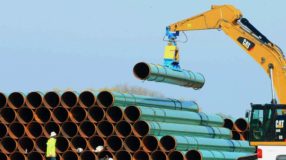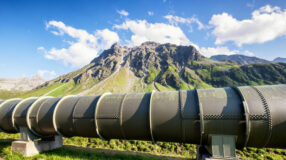The Interstate Natural Gas Association of America is deeply troubled by the Trump administration’s apparent move to scapegoat natural gas to prop up uneconomic coal and nuclear plants.
“There is absolutely no justification for the extreme intervention in energy markets suggested in the draft National Security Council memo. Such a move would be bad public policy, costly to American consumers and the economy, and legally questionable,” said INGAA President and Chief Executive Officer Don Santa.
Natural gas has been enormously important in boosting the US economy, adding new US jobs, bringing cost savings to millions of Americans, revitalizing US manufacturing and lowering the nation’s carbon emissions.
Much of the rationale outlined in the draft National Security Council report is fundamentally flawed, particularly as it relates to natural gas pipelines.
“The expansiveness of the natural gas pipeline network is a strength, not a weakness,” Santa said. “The network’s ability to access diverse sources of supply and storage across the US and Canada makes the system resilient and significantly reduces the risk to gas-fired electric generators by providing the ability, in most cases, to reroute natural gas in the rare event of a disruption. It’s also important to point out that unlike the power grid, pipeline incidents do not result in cascading outages and widespread losses of service. There is no natural gas equivalent to a rolling blackout.”
Pipeline operators have measures in place to protect pipeline infrastructure from cyber and physical security threats and mitigate the effect of a successful intrusion.
“While there are threats to the natural gas delivery system that warrant and are receiving attention, the draft NSC report focuses exclusively on these threats and ignores equally, if not more, serious threats to other critical energy infrastructure sectors,” Santa said. “For example, an attack on electric transmission would render fuel storage at generators irrelevant.”
The inherent nature of natural gas itself and the layers of protection that are part of system design greatly minimize the likelihood that a successful intrusion would result in damage to the pipeline or in extended disruption of natural gas deliveries.
The natural gas delivery system has a proven record of resilience. Disruptions to natural gas service are rare and, when they occur, can usually be remedied quickly. The pipeline industry has decades of experience preparing for and rapidly responding to unexpected events, such as accidental excavation damage or extreme weather. This was evident during last winter’s Bomb Cyclone and the last hurricane season.
INGAA firmly believes that natural gas provides a fuel-secure resource for electric generation and will continue to do so into the future.







